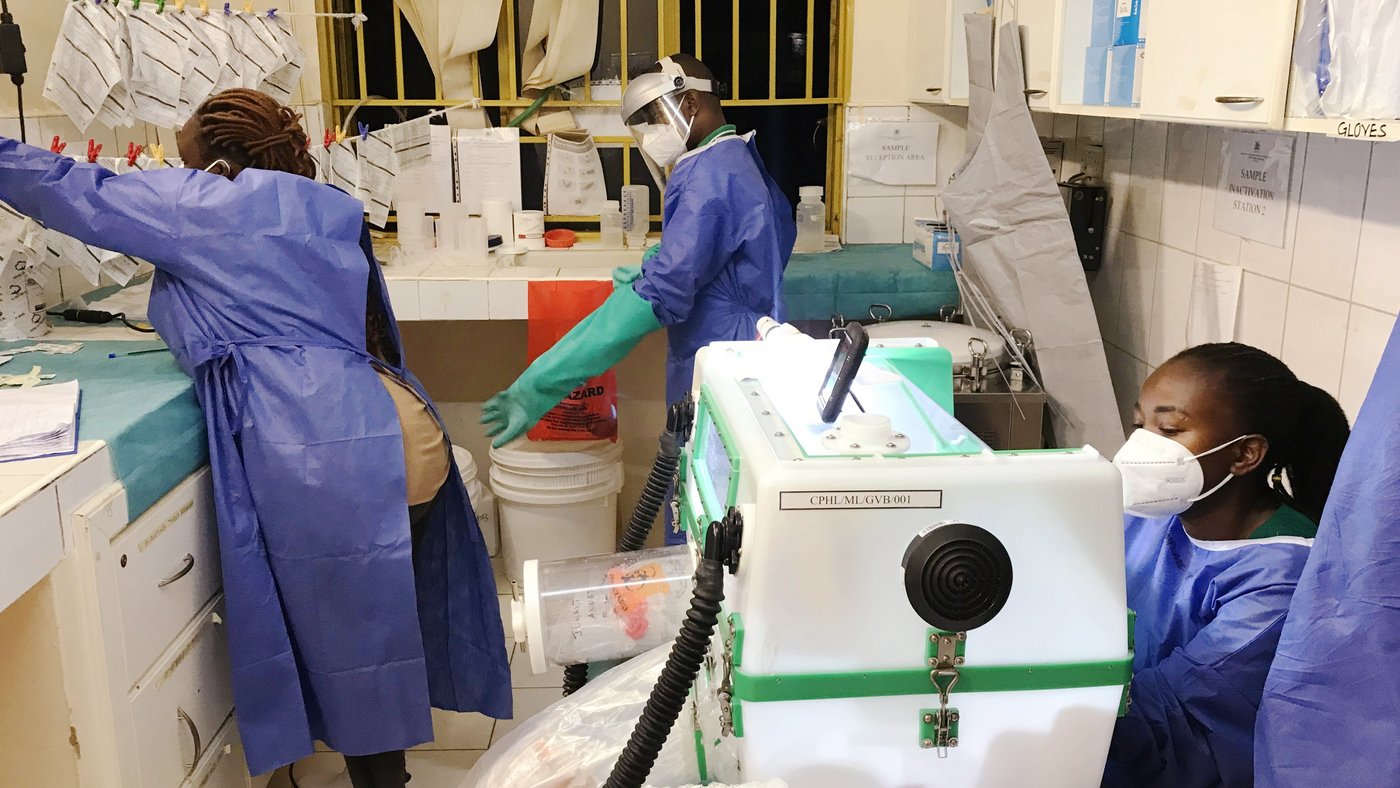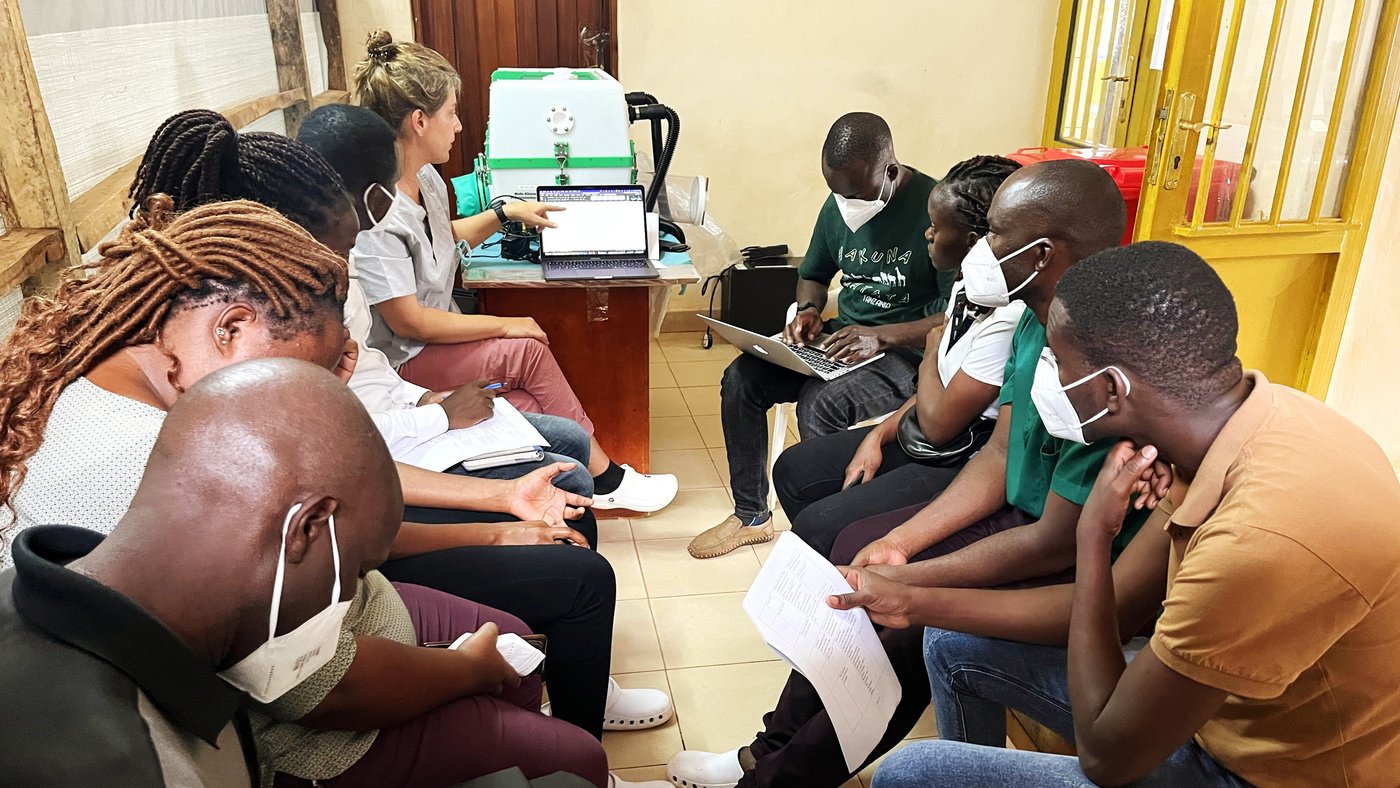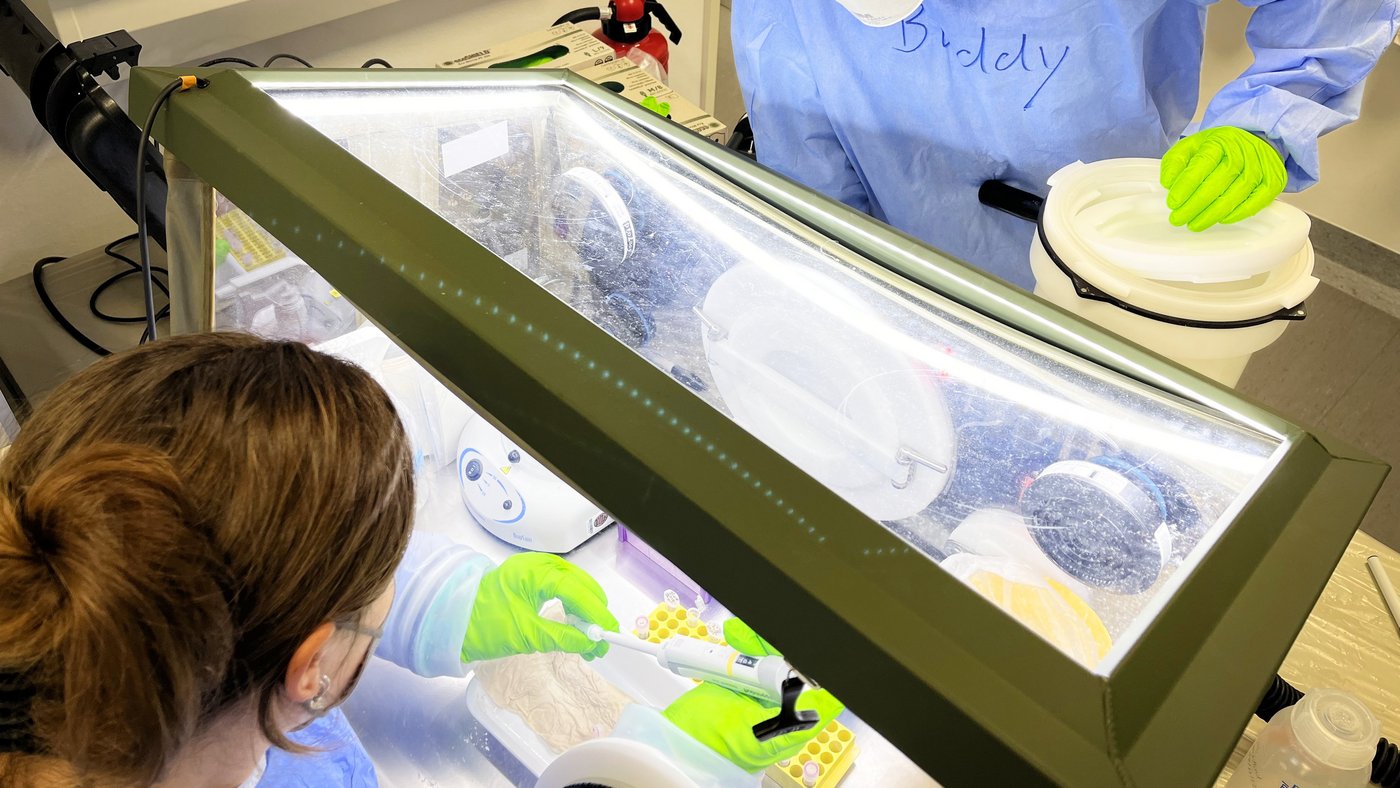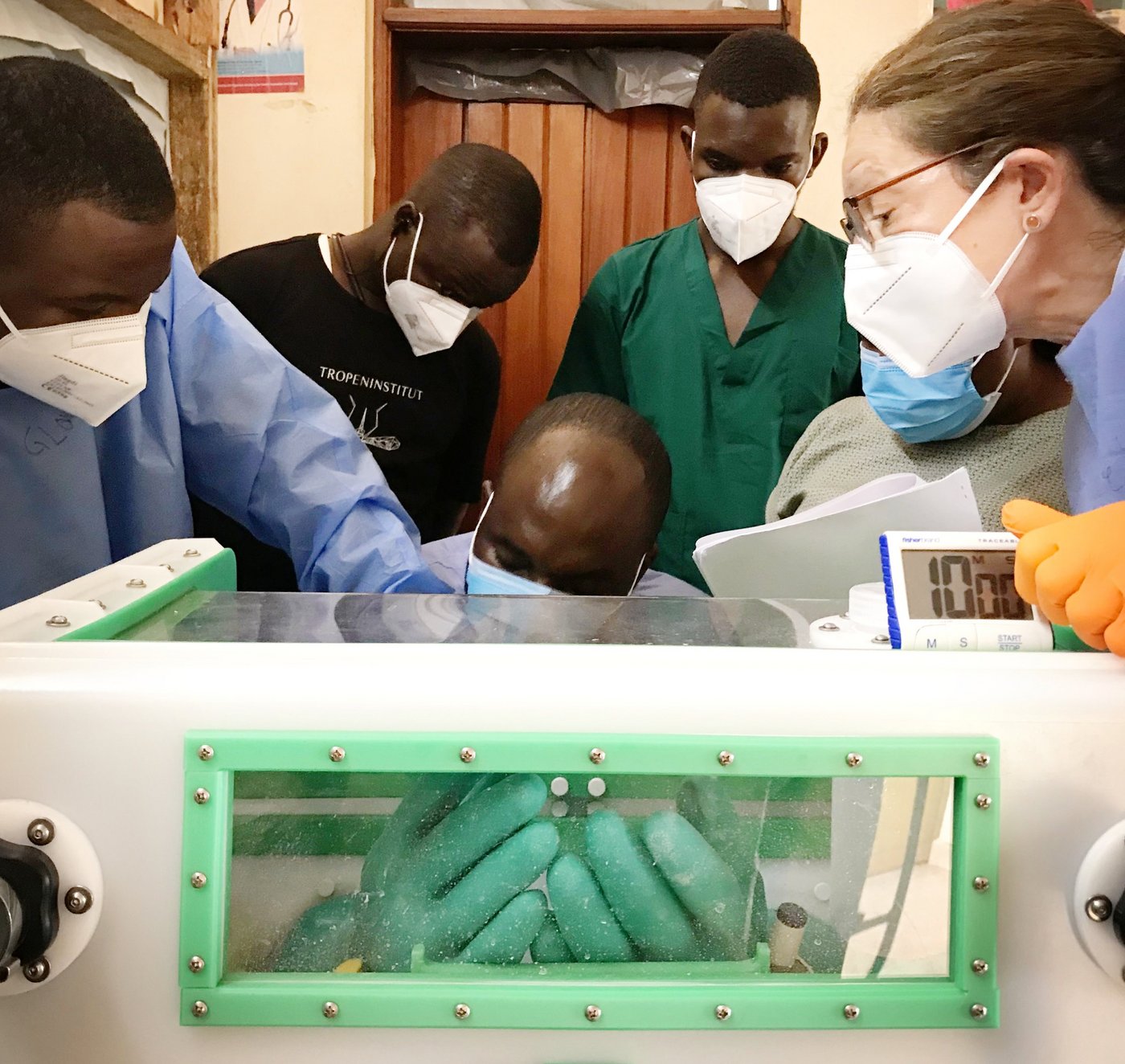Mobile Laboratory
Our team aims at strengthening the laboratory capacity of requesting countries to timely prepare for and respond to infectious diseases outbreaks caused by viral pathogens up to risk group 4, such as Ebola virus. As part of this mandate, we also coordinate, together with the Virology department of the BNITM, the European Mobile Laboratory (EMLab) which offers 10 years of experience in field deployment during emergency operations. In collaboration with local partners, our group further supports the implementation of long-term capacity building programs in endemic areas. We are partners of multiple networks including the World Health Organization (WHO) and the Global Outbreak Alert and Response Network (GOARN), the European Civil Protection Pool and the German Epidemic Preparedness Team (SEEG/GIZ).



We very closely work with various BNITM departments and units, as well as with external collaborators, partners and networks, to provide state-of-start laboratory expertise for pathogens up to risk group 4. Our major focus is on highly pathogenic RNA viruses yet we can quickly adjust to broaden our portfolio of expertise when emergency arises as highlighted with COVID-19 and Mpox. Thanks to many years of fundamental and applied laboratory research, capacity building activities, and EMLab deployments in resource limited settings, we offer a unique set of skills and broad knowledge to support public health surveillance systems and or operational research during non-outbreak and outbreak situations. We actively take part of various teaching opportunities (EPICID, Lab Sphere) and also organize EMLab training once a year to sustain the pool of EMLab experts. We like to develop harmonized processes and training curricula to allow for a sustainable approach ensuring that the pool of experts operating such mobile laboratories deliver comparable data at quality. In line with this, we supported the establishment of the Nigerian-Mobile Laboratory at the Irrua Specialist Teaching Hospital, Irrua, Nigeria, which we still jointly managed. Our pool of experts also assisted with set-up and training of the East Africa Community (EAC) Mobile Laboratories for Ebola virus (2018-2019).
We are currently expanding the EMLab units and services offered in support to outbreak response activities. EMLab is part of the European Civil Protection Pool (ECPP) of Germany and is WHO/GOARN partner.
In a nutshell, our core activities can be summarized as follows:
- Provide laboratory expertise and related-training in the field of diagnostics, serology and or sequencing of viral hemorrhagic fevers and other outbreak-prone viral diseases
- Support the surveillance of infectious diseases caused by pathogens up to risk group 4 where needed
- Deploy at short notice, flexibly, professionally, and globally in response to emergency situations (WHO/GOARN, ECPP or SEEG/GIZ)
- Support the development, validation and implementation of new diagnostic methods
- Support operational research in the field
- Establish mobile and or stationary laboratory capacity in low-resource settings in close collaboration with local partners such as Nigeria, Guinea, Benin and Sierra Leone
- Coordinate the mobile laboratory capacities, including the European Mobile Laboratory (EMLab)










